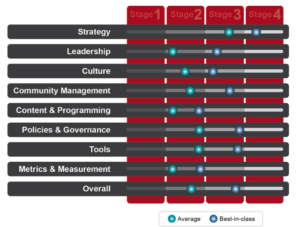By Ted McEnroe, Director of Research and Training, The Community Roundtable
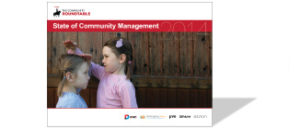 The State of Community Management 2014 marked a major step in the evolution of the quantitative ways we were able to assess what worked in community management – and in successful communities. The prior year, the State of Community Management 2013 gave us a quantitative understanding of what community management looked like – but by 2014, we were ready to measure the indicators of what made a community mature.
The State of Community Management 2014 marked a major step in the evolution of the quantitative ways we were able to assess what worked in community management – and in successful communities. The prior year, the State of Community Management 2013 gave us a quantitative understanding of what community management looked like – but by 2014, we were ready to measure the indicators of what made a community mature.
It was the culmination of something we had already begun to do with our members in TheCR Network – use the Community Maturity Model as a framework with which to benchmark community maturity. Our ability to understand and identify the artifacts of community maturity led to the introduction of something new – our “best-in-class” segment. We were able to highlight the 20 percent of communities who scored the highest overall in the survey, and highlight those elements that really made them stand out relative to the overall survey population.
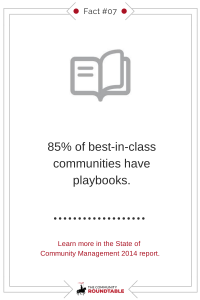
The findings from SOCM2014 included several research-backed findings that hold up just as well today as they did then. Among them:
Community maturity delivers business value. Our “best-in-class” communities were much more likely to be able to measure their value to the business.
Advocacy programs increase engagement. Community leadership and advocacy programs correlated with higher engagement, the ability to measure value and executive engagement, suggesting empowering informal community leaders were a powerful tool for strengthening community
Executive participation impacts success. Getting formal leaders – executives – to take part helped communities secure resources, improve engagement and take a more strategic approach to community, including resourced roadmaps for community development.
For the first time, too, we were able to see measurable evidence of something that until then was known but unproven. Communities that scored well in one competency usually scored well in other areas. For example – communities with well-developed strategies didn’t just score well in strategy. These successful communities usually engaged leaders more effectively, empowered and supported community managers and developed the policies and governance structures to help communities succeed, too. If they didn’t, it was a sign of untapped opportunities to grow – and a clearer direction to pursue.
By 2015 – we were able to take the next step.
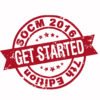
 This post is part of a series summarizing The Community Roundtable’s annual State of Community Management reports. The full reports are available on our website, and you can take the State of Community Management 2016 survey through March 18 at https://the.cr/socm2016survey
This post is part of a series summarizing The Community Roundtable’s annual State of Community Management reports. The full reports are available on our website, and you can take the State of Community Management 2016 survey through March 18 at https://the.cr/socm2016survey
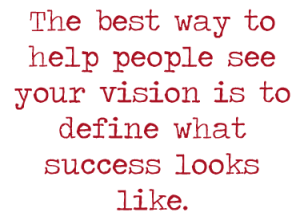 This is a short and sweet (as in “Sweet! Best practices I can use!) post on one of the most common questions we get at TheCR: “How do I convince our executives to invest in community programs? Help!” Through the
This is a short and sweet (as in “Sweet! Best practices I can use!) post on one of the most common questions we get at TheCR: “How do I convince our executives to invest in community programs? Help!” Through the 